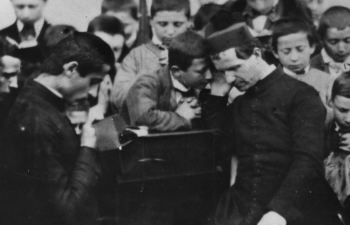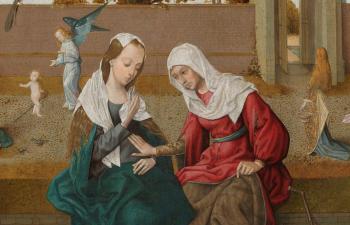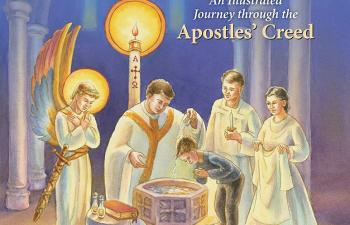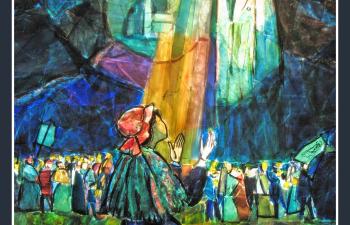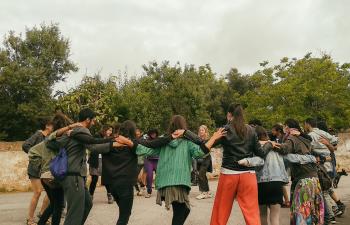What is the secret to living the Christian life? The Christian life – the ‘moral life’, as it is often called – is simply a participation in the life of Christ himself. Morality and spirituality are never to be separated. As St Paul put it, ‘For to me, to live is Christ’ (Phil 1:21).
The Catechism leads us to this answer in three stunning paragraphs (1693-1695) that present the overview to Part 3, Life in Christ. The secret, it indicates, is to enjoy a living relationship with each of the Three Divine Persons of the Trinity. It is in this relationship that all of our actions find their authentic source, and it is from this clear spring that the heart is purified so that our thoughts, words, and acts might flow pure and clean.
It is to live in the sight of the Father who sees in secret (CCC 1693). We do not come to fulfilment in our lives in isolation. We live alongside others. We look at others and are looked at in our turn. And the eyes that look upon us can be eyes of love or disdain. The gaze of others affects us profoundly. This paragraph in the Catechism reminds us that the Christian life prioritises interiority, fostering a contemplative receptivity, because it wants us to allow ourselves to be ‘seen’ and be ‘gazed’ upon by the infinitely loving eyes of the Father who made us and who has created us for one thing only – to have the joy of knowing that our identity, our secret name, flows from that gaze and, knowing this, to echo this back as a friend of God. The person who allows himself to be seen by infinite Love and knows himself as an image of that Love can become ‘perfect as your heavenly Father is perfect’. The Christian life, then, prioritises this interiority. Being precedes doing. We all know this truth instinctively: we call ourselves ‘human beings’, not ‘human actions’.
It is to know one’s unity with the Son, the beloved of the Father (CCC 1694). How often the Divine Author, in his Scriptures, addresses the reader as ‘Beloved’! This appellation is really a command – ‘Be-loved!’ And Christ repeats it to his friends: from his intimacy with his Father, and because of our indwelling in his life, he says, ‘This is my commandment: love one another as I have loved you.’ All that the Father poured out upon his Son in eternity is en-fleshed in the Incarnation. Christ united himself to every person through the assumption of human nature, and in Baptism he incorporates us into himself. Now we dwell in him as the branch dwells in the Vine. All of the life of the Vine is ours, flowing through each branch, making it fruitful. The mind of Christ, the virtues of Christ, the prayer of Christ – all is given, all is for us, so that we can conform our thoughts, words and actions to this life.
It is to have the Holy Spirit as the interior Master of one’s life (CCC 1695). The work of this interior Master is described in a series of verbs: the Holy Spirit teaches us to pray; prompts us to act in ways that will bear the fruit of the Spirit; heals the wounds of sin; transforming us; enlightens us as to truth, and strengthens us to live according to all that is true. In a word, the Spirit becomes our true life. We each have the source of our inalienable dignity in the fact that we are made in the image of God the Son (who is the Image of the unseen God). We have the renewal of our ‘glory’ through the sanctifying action of the Holy Spirit who remakes us into God’s likeness (see CCC 702-705).
This article is originally found on page 4 of the printed edition.
This article is from The Sower and may be copied for catechetical purposes only. It may not be reprinted in another published work without the permission of Maryvale Institute. Contact [email protected]



